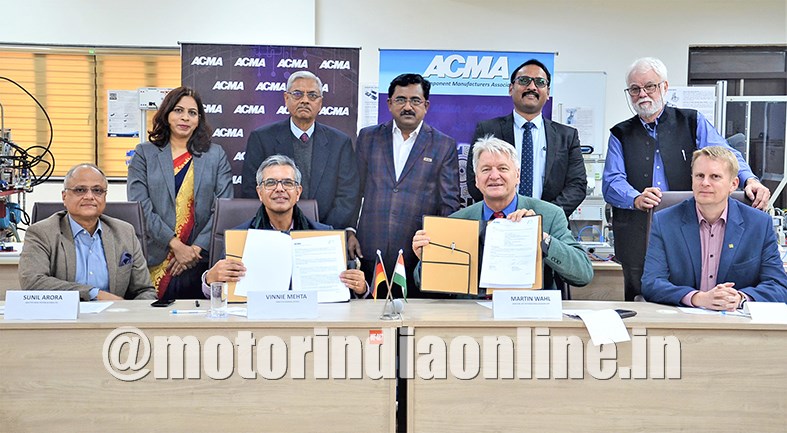Having signed a MoU with the Bavarian Employers Association of Germany, ACMA will be able to address the skill-gap scenario in the Indian automotive industry
Automotive Component Manufacturers Association of India (ACMA), the apex body representing India’s automotive component manufacturing industry, signed a Memorandum of Understanding (MoU) with BFZ, the training and development centres of the Bavarian Employers’ Association of Germany. As part of the MoU, ACMA and BFZ, to begin with, will work together for implementation of a pilot cluster with six companies in the NCR region on ‘Strengthening Industry-Based Approaches for Dual Education and Training’ (SINADE), a joint initiative of the German Federal Ministry for Education and Research (BMBF) and the Ministry for Skill Development and Entrepreneurship (MSDE), Government of India.

The scope of the cooperation between ACMA and BFZ includes:
- Introduction and implementation of vocational training and education processes in the participating cluster companies to enable them to adopt and adapt to new technologies and enhance their productivity and competitiveness.
- Creating a pool of experts within the participating cluster companies for enhanced vocational training structures and processes. In the first phase the participating cluster companies will be enabled to train and educate their own staff according to their requirements while in a second phase they shall be prepared to employ and train regular apprentices under the National Apprenticeship Promotion Scheme (NAPS).
- Creation of common faculty centres (CFCs) with latest equipment for hands-on training for industrial workforce.
- Establishing a formal training of trainers (ToT) infrastructure to enable ACMA and the participating cluster companies to implement this ToT.
- Development and implementation of a modern certification and examination system for technical and vocational training.
Commenting on signing of the MoU, Vinnie Mehta, Director General, ACMA, said: “Germany is renowned for its vocational training system which complements the formal education system and ensures availability of appropriate skills in tune with the needs of the industry. Considering the transformative phase that the Indian automotive industry is going through, to stay competitive, it will need workforce with newer skills and re-skilling of the existing. Through this joint cluster project with BFZ, we intend to create a ‘training of trainers’ infrastructure to create a pool of experts in ACMA as also the automotive component industry in new-age technologies. The set of trainers so created can in-turn train others, thus addressing the skill-gap in the industry.”